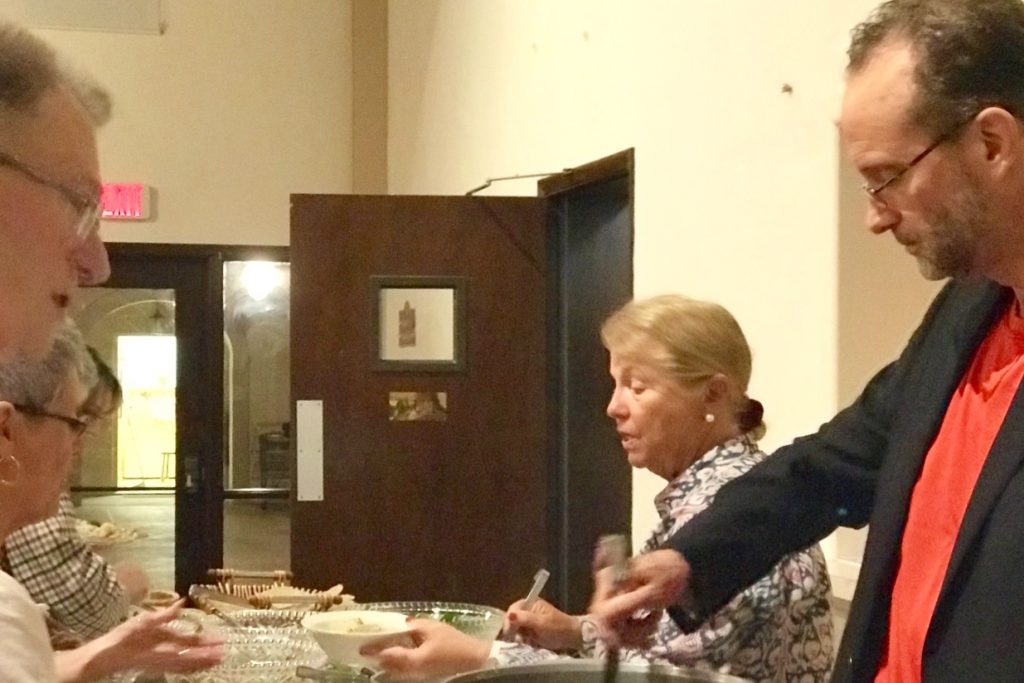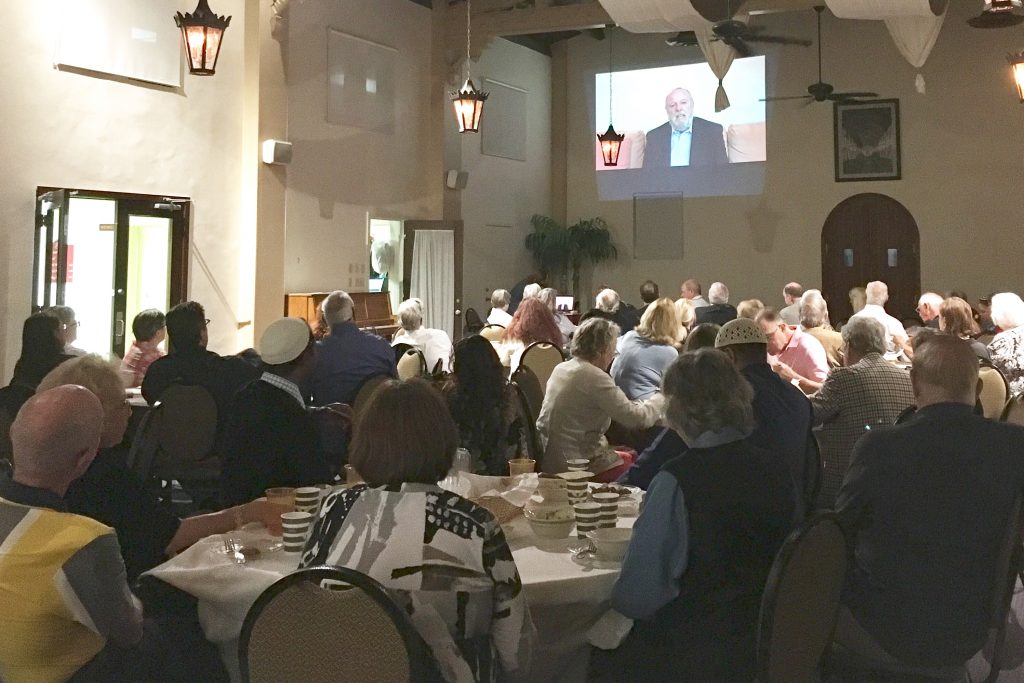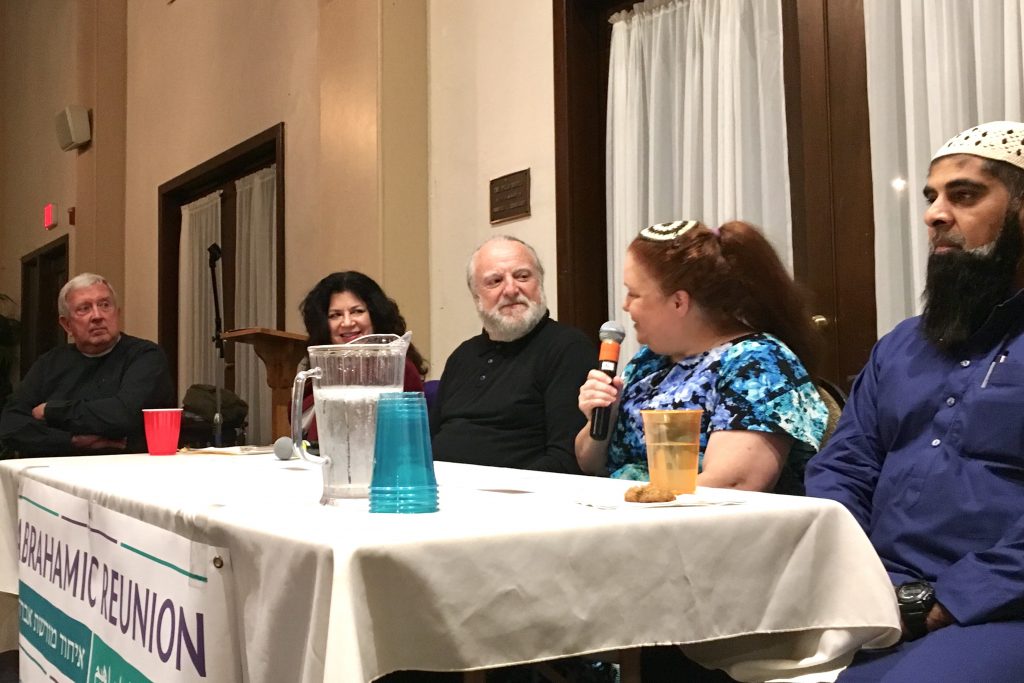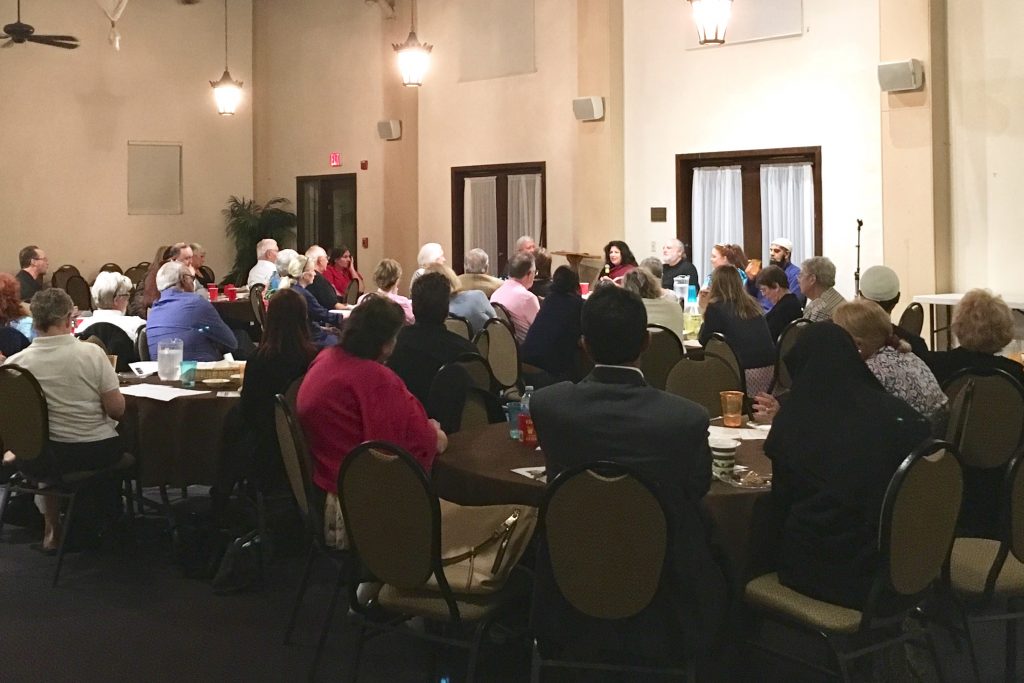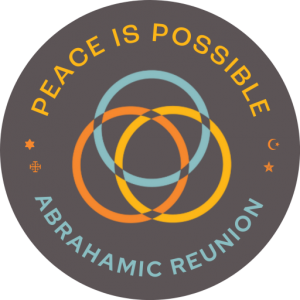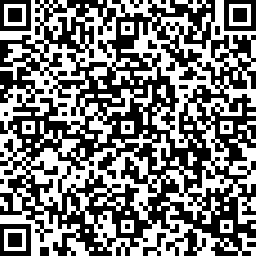On Monday, February 26th, 55 people came together for dinner and discussion on the topic “How do our scriptures, rituals, and faith deal with death?” The event was hosted by Holy Trinity Episcopal Church in West Palm Beach and organized by Beatty Page Cramer, the church’s Interfaith Coordinator, the Abrahamic Reunion, and Lake Worth Interfaith Network.
The evening began with a blessing of the meal by Rev. David Wilt of Holy Trinity, a dinner of soup and salad provided by the church. After supper, as people were eating dessert, Rev. Chris Miller introduced the Abrahamic Reunion and showed a video about the organization’s work and the upcoming events of Healing the Heart of the Holy Land, April 16 – 23rd, the Abrahamic Reunion’s biggest undertaking to date.
Rev. David Wilt of Holy Trinity then introduced himself as moderator of that evening’s panel, although he joked that everyone was friendly and he didn’t anticipate having to do much moderating. The panelists were Maya Malay of the Lake Worth Buddhist Congregation, David Less of the Abrahamic Reunion, Rabbi Cookie Olshein of Temple Israel of West Palm Beach, and Imam Mohamed Ismail of the Muslim Community of Palm Beach County.
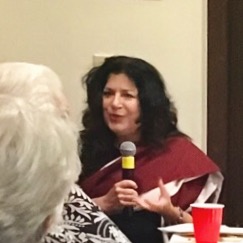 First to speak was Maya Malay. She spoke about the ways that Buddhists think about and prepare for death. An important aspect of this is meditation. Through meditation, one can come to know one’s self as consciousness, not a body. She explains, “We recognize ourselves as being something beyond the body, and in that recognition, in that identification, we can travel without hesitation.” Through meditation, one learns that it’s “alright to let go of the body,” making it easier to accept death when the time comes.
First to speak was Maya Malay. She spoke about the ways that Buddhists think about and prepare for death. An important aspect of this is meditation. Through meditation, one can come to know one’s self as consciousness, not a body. She explains, “We recognize ourselves as being something beyond the body, and in that recognition, in that identification, we can travel without hesitation.” Through meditation, one learns that it’s “alright to let go of the body,” making it easier to accept death when the time comes.
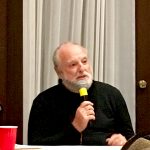 Next, David Less spoke from a Sufi perspective. He said that, “Death is a different version of life.” He spoke about how we leave the body behind but we take our mind when we die. The mind that we have in life is the mind we take with us when we die. But he explained that “we don’t have the ability to change as much there, unless we practice here.”
Next, David Less spoke from a Sufi perspective. He said that, “Death is a different version of life.” He spoke about how we leave the body behind but we take our mind when we die. The mind that we have in life is the mind we take with us when we die. But he explained that “we don’t have the ability to change as much there, unless we practice here.”
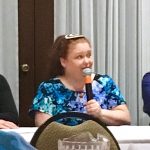 Third, Rabbi Cookie Olshein offered a Jewish perspective. She gave both the majority and minority opinions on death in Judaism. The majority opinion is that “since we are created in God’s image, we are to act godly.” Upon death, “the soul returns to God. God breathes the soul into our bodies [at birth] and the soul returns back [at death].” The minority opinion says that “if we didn’t complete our tasks while here on earth, God will send us back, and we get a second chance, until we get it right.”
Third, Rabbi Cookie Olshein offered a Jewish perspective. She gave both the majority and minority opinions on death in Judaism. The majority opinion is that “since we are created in God’s image, we are to act godly.” Upon death, “the soul returns to God. God breathes the soul into our bodies [at birth] and the soul returns back [at death].” The minority opinion says that “if we didn’t complete our tasks while here on earth, God will send us back, and we get a second chance, until we get it right.”
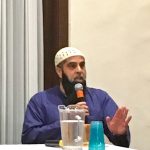 Fourth, Imam Mohamed Ismail shared his point of view as a Muslim. He began by pointing out the common ground everyone shares. “At the end, there is this great equalizer: it’s death.” Every person, good or bad, will die. Everyone agrees that it will happen. “What happens after, whether you feel you come back, that you can debate, have your ideology, your belief. But there’s no denying that you will die.”
Fourth, Imam Mohamed Ismail shared his point of view as a Muslim. He began by pointing out the common ground everyone shares. “At the end, there is this great equalizer: it’s death.” Every person, good or bad, will die. Everyone agrees that it will happen. “What happens after, whether you feel you come back, that you can debate, have your ideology, your belief. But there’s no denying that you will die.”
He went on to explain that according to the Prophet Muhammad (PBUH) and the Hadith, or oral tradition, “All your deeds come to an end except three.” The first is the deeds that you have passed forward. The second is “any type of charity that is perpetuated.” This means that for as long as people are benefiting from charity you did in life, you will be rewarded. The third is the knowledge you have given someone that they are still benefitting from. If you teach someone how to do something good, you will be rewarded for as long as he continues to do what you taught him.
When he finished, Rabbi Cookie Olshein added that the Imam’s words reminded her of something similar in Judaism. She often tells people that there are three ways for Jews to honor a loved one’s memory. First, a person can do acts of loving kindness in that person’s honor. Second, they give charity in their honor. Third, they can learn and teach in that person’s memory. In those three ways, the loved one’s memory is kept alive. In Islam, those same deeds are the way that someone continues to do good after death.
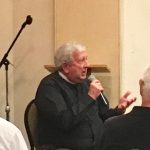 Lastly, Rev. David Wilt, the moderator, had the opportunity to speak about a Christian perspective on death. He shared that during his time at Holy Trinity, he has done over 314 funerals. He said people mostly ask the same question: “How is my loved one doing?” He pointed out that “we all, whatever religion it is, whatever faith it is, have that hope, in our case, that hope of the resurrection.”
Lastly, Rev. David Wilt, the moderator, had the opportunity to speak about a Christian perspective on death. He shared that during his time at Holy Trinity, he has done over 314 funerals. He said people mostly ask the same question: “How is my loved one doing?” He pointed out that “we all, whatever religion it is, whatever faith it is, have that hope, in our case, that hope of the resurrection.”
After all of the panelists finished speaking, people had the opportunity to ask questions. Questions ranged from views on heaven and hell to opinions on the purpose of life. When the event was over, people were slow to leave and spent time talking and getting to know each other further, not wanting such a beautiful evening to end so soon.
The event was held in conjunction with the Muslim Association of West Palm Beach, Temple Israel of West Palm Beach, Lake Worth Interfaith Network, the Lake Worth Buddhist Congregation and of course, the wonderful host, Holy Trinity Episcopal Church.

